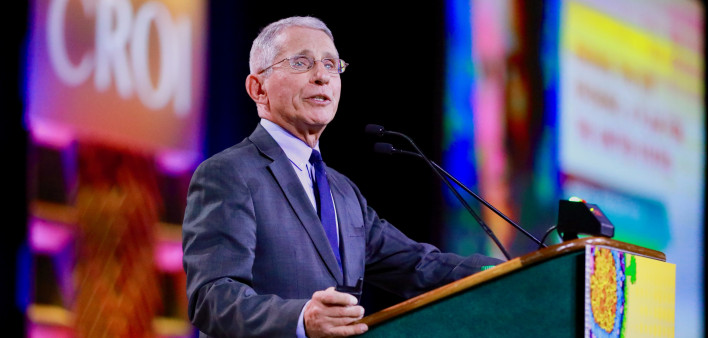As the National Institutes of Health (NIH) prepares to ramp up national efforts to tackle the HIV epidemic and lower the stubbornly stagnant transmission rate, Anthony S. Fauci, MD, director of the National Institute of Allergy and Infectious Diseases (NIAID) is calling for refined focus on the needs of the more than 1 million U.S. residents living with the virus.
Fauci and his colleagues have written the latest in a series of essays reflecting on the state of the HIV epidemic in the United States and the many challenges that lie ahead. In their commentary, published in the Journal of the American Medical Association, they note the great success of antiretroviral (ARV) drug development, the products of which have granted people with HIV a near-normal average life span.
But even when people with HIV have a fully suppressed viral load thanks to ARV treatment, they face an array of increased health risks, especially as the median age of the population creeps past 50 years old. These include an approximately doubled risk for cardiovascular disease (CVD) as well as a higher risk for kidney disease, lowered bone mineral density and osteoporosis, liver disease, certain cancers and neurocognitive impairment.
Researchers are still teasing apart why these health problems are more common among people with HIV. ARVs themselves can raise certain health risks. Also, certain behaviors associated with health problems—such as smoking, use of street drugs and misuse of alcohol—are more common in the HIV population compared with the general population.
Even when undetectable thanks to ARV treatment, the virus itself can contribute to various health problems. Researchers believe that the chronic inflammatory state to which even well-treated HIV gives rise may contribute to various diseases, including CVD and cancer.
That said, Fauci and his colleagues look forward to the results of the ongoing REPRIEVE trial, which is a major randomized study analyzing whether prescribing a cholesterol-lowering statin, compared with giving participants a placebo, lowers their risk for CVD and various other health problems, including cancer, as well as the risk of death.
More research is needed, though, to better understand what drives the myriad health problems people with HIV face, in particular the virus’s association with chronic inflammation. Ideally, such research will yield new treatments that can render HIV an increasingly innocuous infection.
Coinfection with hepatitis B and C viruses (HBV and HCV) is also much more common among people with HIV than the general population. HBV is vaccine preventable and treatable. Although there is no vaccine for HCV, it is easily cured, albeit with treatments that have a wholesale cost of tens of thousands of dollars. Fauci and his colleagues call for greater access to HCV treatment, considering insurers’ history of restricting access.
To read a press release about the essay, click here.
To read the essay, click here.







2 Comments
2 Comments